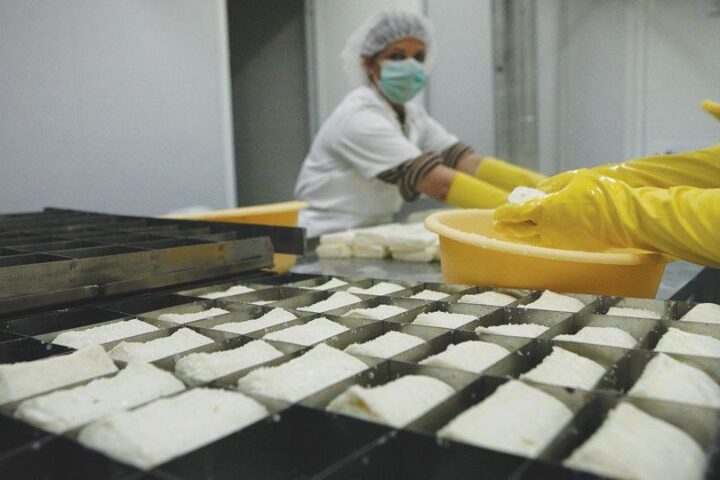Registering halloumi as a product of protected designation of origin (PDO) has languished for over five years in EU corridors due to Cyprus problem politics with Nicosia blaming the European Commission for the delay.
Cyprus Agriculture Minister Costas Kadis told reporters during the week that the ball is in EU’s court with the Commission citing obstacles due to Cyprus’ division.
Kadis blamed the lack of progress on political reasons and linking halloumi to the Green Line Regulation.
“According to the regulations governing the registration of products, the European Commission should have concluded the registration of one of the most important Cypriot products a long time ago”.
Kadis added: “All other applications that involved registering a traditional cheese as a PDO, were concluded within 6-7 months. However, in this case, it has taken the Commission five years with procedures still not completed”.
He has expressed the government’s discontent, “quite strongly”, in a teleconference that took place between the EU agriculture ministers earlier this week.
The Agriculture Minister, who is in charge of promoting Cyprus’ traditional cheese registration as a PDO with the European Union, said that registering halloumi was vital.
“The country’s legal services has its hands full with fending off claims of companies claiming the right to produce their version of Halloumi. Closing the file will bring an end to all cases pending in EU courts.”
Kadis comments came after an EU official said the registration of halloumi as a PDO product is still pending due to disagreements between the two communities on the island, without elaborating on what the various stumbling blocks were.
Commission spokeswoman Miriam Garcia Ferrer told the Cyprus News Agency, following a meeting of EU Agriculture Ministers on Monday, the “registration of halloumi cheese in the EU as protected designation of origin is still ongoing”.
Ferrer said there is still no agreement on all points of common understanding reached between the President of the European Commission and the leaders of the two communities in July 2015.
“It is still not the case that the geographical indication is registered in the EU which means that it cannot be registered in trade agreements”.
She said that while there have been discussions by Cypriot leaders and the European Commission, “there are five points that the Commission agreed on which have to be reflected in this common understanding.”
No protection
The Cyprus Chamber of Commerce and Industry (KEVE) said that different services of the European Commission seem to have different approaches to the protection of halloumi.
“One of the sub-committees of the Commission emphasizes the political dimension while another, disagreeing with the previous one, emphasizes conditions of the health checks required for preparation of the product, delaying the process,” said KEVE’s Andreas Andreou.
He argued that the new Commission “is therefore called upon to have a joint approach on all aspects of the dossier, involving all the committee services”.
On July 16, 2015, a few days before the publication of Cyprus’ halloumi file in the European Union’s Journal, President Nicos Anastasiades and Turkish Cypriot leader Mustafa Akinci reached an understanding in the presence of then European Commission President Jean-Claude Juncker.
Juncker’s office was prompted by the deal to issue a statement saying there was a “consensus” on the issue of halloumi.
Juncker noted in the statement, that after a visit to Cyprus he and the leaders of the two sides had resolved the long-standing issue of the halloumi/hellim PDO.
“The European Commission will adopt a proposal to amend the Green Line Regulation on the same day as the official publication of the official application for the registration of Halloumi / Hellim as a Protected Designation of Origin (PDO) of Regulation No. 1151/2012”.
At the time, Juncker did not go into details, however, following the agreement the European Commission announced that international certification body Bureau Veritas was to be tasked with inspecting halloumi/hellim production throughout the island.
KEVE along with its Turkish Cypriot counterpart would also have a role in supervising the certification process, facilitating Turkish Cypriot producers to export hellim via the Republic.
Shortly after Juncker visited Cyprus, the Commission published Cyprus’ official application to designate halloumi as a PDO.
It was then thought that the process would be completed within the coming months, five years on halloumi’s PDO fate is undecided.










